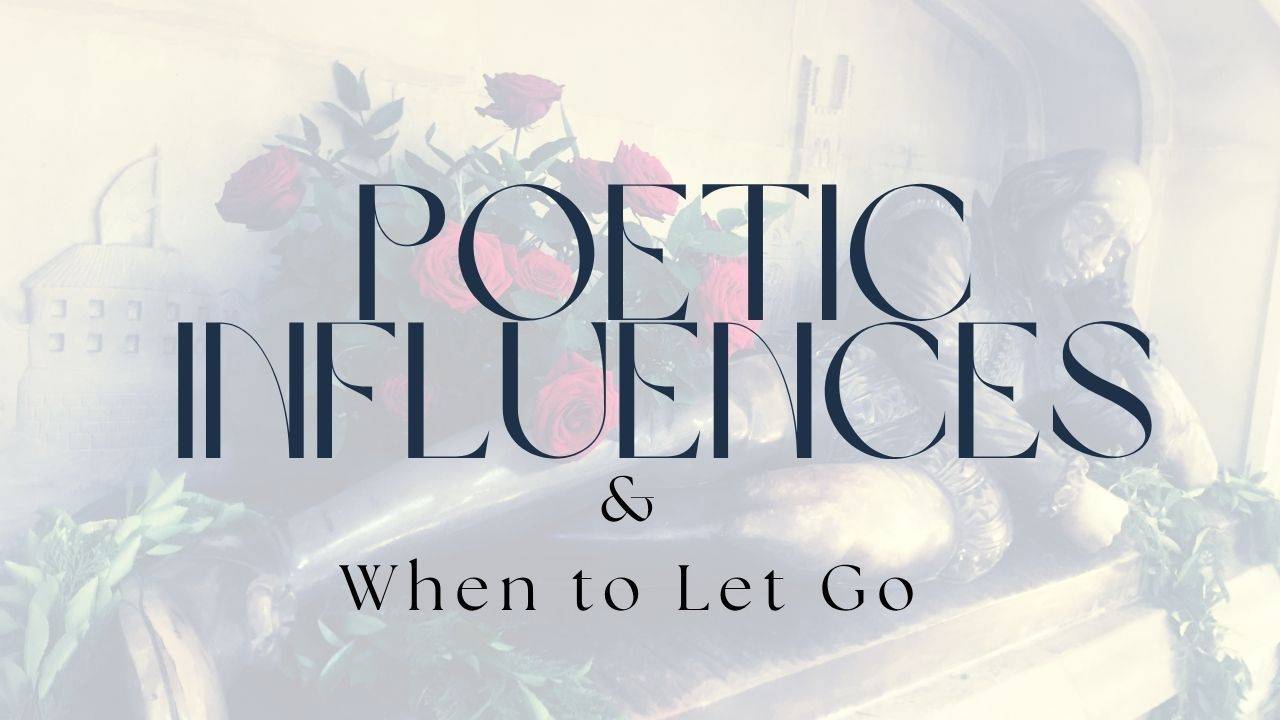Reviewing your poetic influences
Jul 04, 2025
One of the most powerful things you can do as a poet, at an stage of your career, is to pause and look around. To undertake a a bit of a creative stocktake, if you will.
You see we don't write in a vacuum. Remember that quote from Anaïs Nin,
“We don't see things as they are, we see them as we are.”
Well this is also true when we write. The things that we read, the social media we consume, the art we view all impacts the type of things we write. I did a big stocktake once as part of a larger creative transition and deeply discovered the recurring themes in my work. Not only did it help me to understand my deeper calling, or higher purpose as a writer, it also forced me to look wider - at what I wasn't looking at...yet!
We cover this in the Empowered Beginnings course but here are a few quick tasks to get you thinking about this for your own work.
Start with What Moves You
Think about the poetry you love, then think about why you love it.
-
Is it the sound of the language?
-
The rhythm? The theme?
-
The way it stirs something deep in you — even if you can’t explain it?
- The way it looks on the page?
Now think beyond poetry:
-
What films or TV shows do you return to again and again?
-
What music makes your chest swell?
-
What kind of art do you hang on your walls (or wish you could)?
-
What topics do you talk about when you forget to be polite?
Your creative voice isn’t just shaped by other poems — it’s shaped by everything that moves you. And knowing what moves you gives your poetry authenticity.
🗝 And authenticity is the key.
Now, Look at What’s Missing
Many of us were raised in education systems that taught us poetry through a narrow lens.
We studied the English Canon: brilliant writers, yes — but overwhelmingly white, male, and long gone.
Holding them up as the only model of “great” poetry can silence new, contemporary, culturally diverse, or gender-diverse voices — including our own.
For a long time, I was caught between admiration and intimidation. I gave up writing poetry for over a decade because I didn’t see myself in the writers I was studying.
So let's take a look at:
-
Who are your creative role models — and who’s missing from your list?
-
Are most of your influences from a particular culture, era, or voice?
-
What do you want to add to your creative mix?
This is where change begins — not by erasing the past, but by making space for whats been missing.
Unlearning Is Creative Work, Too
Unlearning doesn’t mean forgetting.
It means noticing what ideas you’ve inherited — and choosing which ones to carry forward.
This is one of the most liberating things I’ve learned as a poet:
You don’t have to emulate someone else’s voice.
You get to make your own.
And your influences get to evolve.
That’s not a betrayal of tradition — it’s a continuation of it.
💛 A Gentle Invitation
If this post sparked something in you, you might love Empowered Beginnings.
In the course, we walk through your poetic influences — and your inner critic — so that you can create with more freedom, confidence, and joy.
If you'd love to learn more visit https://www.ninecupswriting.com/empoweredbeginnings
Increase Your Chance of Poetry Publication
Download our free guide for the 10 crucial steps to boost your chances of publication.
Stay connected with news and updates!
Join our mailing list to receive the latest news and updates from our team.
Don't worry, your information will not be shared.
We hate SPAM. We will never sell your information, for any reason.
